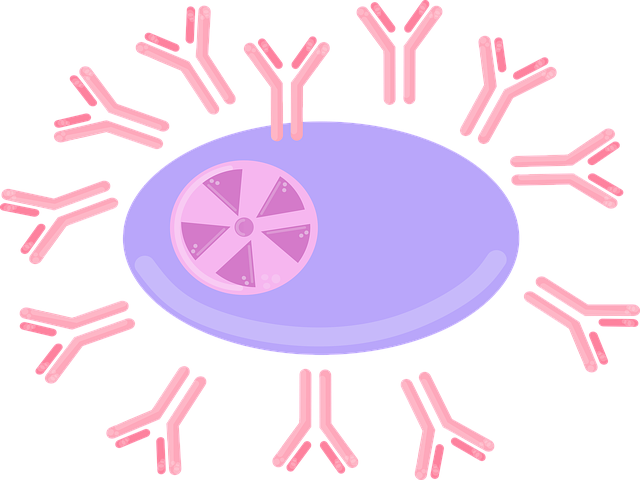Wondering about Mast Cell Activation Syndrome (MCAS Australia)? In this article, we’ll cover what MCAS is, how it’s diagnosed, common symptoms, treatment options, and where to find support specifically in Australia. Whether you’re newly diagnosed or seeking more information, read on to understand MCAS better.
Key Takeaways
- Mast Cell Activation Syndrome (MCAS) affects 5-10% of the population and presents a wide variety of symptoms due to the release of mast cell mediators.
- Diagnosing MCAS entails a thorough clinical assessment and laboratory tests, including measuring mast cell tryptase levels, to distinguish it from other similar conditions.
- Effective MCAS management requires a personalized approach that includes medication, dietary changes, and stress management techniques to alleviate symptoms and avoid triggers.
What is Mast Cell Activation Syndrome (MCAS)?

Mast Cell Activation Syndrome (MCAS) is a heterogeneous group of disorders characterized by episodic symptoms resulting from the release of mast cell mediators and mast cell activation disorder. MCAS affects an estimated 5-10% of the population, presenting a diverse array of symptoms that vary greatly from person to person.
Mast cells, a type of white blood cell, play a pivotal role in our immune system and the immune response. They are primarily involved in fighting infections and initiating allergic reactions. When these cells are activated, they release a variety of mediators responsible for the symptoms of MCAS, including:
- tryptase
- histamine
- heparin
- prostaglandins
- proteases
- cytokines
- whole blood histamine.
MCAS can be driven by factors like allergies, sensitivities, intolerances, and external triggers such as drugs, stress, and substances, making identification and management challenging, often due to the underlying cause.
Symptoms of Mast Cell Activation Syndrome (MCAS)

Symptoms of MCAS are incredibly varied, impacting multiple organ systems, which complicates diagnosis and management. Common manifestations include:
- Hives
- Gastrointestinal symptoms
- Low blood pressure
- Wheezing
However, the symptoms can vary widely among individuals, reflecting the diverse effects of mast cell mediator release.
Some individuals may experience chronic fatigue, while others might suffer from heart palpitations or recurrent anaphylaxis. This variability requires personalized treatment and management, as effective solutions differ from person to person. Recognizing these symptoms is crucial for effective management and enhancing quality of life.
Diagnosing MCAS in Australia
Diagnosing MCAS is a complex process due to the overlap of its symptoms with other conditions. It requires a thorough clinical assessment and differential diagnosis based on the diagnostic criteria to ensure accuracy.
Healthcare providers use a mix of clinical assessments and laboratory tests, including a blood test, to diagnose MCAS. Measuring mast cell tryptase levels, a reliable marker for evaluating MCAS, is often part of this process. Elevated levels of mast cell mediators are crucial for confirming the diagnosis.
Ruling out other conditions that mimic MCAS symptoms and present similar symptoms is crucial for an accurate diagnosis, enabling more targeted and effective treatment plans for those who have been diagnosed.
Common Triggers of MCAS
Identifying and managing triggers that activate mast cells is key to preventing flare-ups and allergic reaction. Psychological stress, certain medications, and environmental factors are significant triggers that have triggered beyond typical allergen exposure.
Stress often leads to increased mast cell activation and worsening symptoms. Mast cells can also be activated by:
- Foods with monosodium glutamate (MSG) and artificial additives
- Environmental factors like sudden temperature changes
- Exposure to strong odors or harsh chemicals.
Avoiding these triggers can significantly reduce the frequency and severity of trigger mcas flare up, making this proactive approach vital for effective trigger management.
Treatment Options for MCAS

Managing MCAS involves a multifaceted approach with medications, dietary adjustments, and lifestyle changes. Sodium cromoglicate is commonly prescribed to alleviate symptoms like abdominal cramps and headaches. In severe cases, corticosteroids may be used to manage symptoms such as malabsorption and bone pain.
Approaches to managing allergic reactions and stress symptoms include:
- Anti-inflammatory herbs like quercetin and bromelain, which can help stabilize mast cells and reduce allergic reactions.
- Magnesium supplementation, which is beneficial for alleviating physical symptoms associated with chronic stress.
- A low-histamine diet, which can help reduce overall histamine load from food, though it requires careful planning to avoid severe restrictions.
Stress management techniques play a crucial role in controlling symptoms and improving overall body well-being, ensuring a holistic approach to addressing all aspects of the umbrella term of the three major forms of the condition.
The Role of Nutrition in Managing MCAS
Nutrition is vital in managing MCAS symptoms, necessitating individualized nutrition plans for effective management. A Mediterranean-style diet, rich in fiber and prebiotics, can support gut health and potentially reduce MCAS symptoms. Probiotics, such as Lactobacillus rhamnosus, may help regulate immune responses and mitigate mast cell activation.
Collaborating with Clinical Nutritionists for thorough investigations and support can significantly enhance the quality of life for individuals with MCAS. This tailored approach ensures that dietary interventions are both effective and sustainable, helping to manage symptoms more efficiently.
Research and Support for MCAS in Australia

The Australasian Mastocytosis Society (TAMS) plays a pivotal role in supporting individuals with MCAS in Australia. TAMS provides advocacy, education, and support for those affected by mast cell activation disorders.
TAMS offers educational resources, including webinars and newsletters, to keep members informed about the latest developments in MCAS research. The organization also engages in national and international research initiatives to improve the understanding of mast cell diseases.
Joining support groups can reduce feelings of isolation and offer practical advice for living with MCAS. Collaborating with healthcare providers who understand MCAS and the medical community can enhance the management of symptoms and overall well-being.
Associated Conditions
MCAS often co-occurs with other medical conditions, which can complicate its management. Patients with Ehlers-Danlos Syndrome (EDS), particularly the hypermobile type, frequently experience chronic inflammation that may exacerbate mast cell activation disorders.
Postural Orthostatic Tachycardia Syndrome (POTS) is commonly reported alongside EDS, contributing to symptoms like increased heart rate and blood pooling upon standing. Additionally, patients with EDS have higher rates of gastrointestinal disorders, such as eosinophilic esophagitis, linked to abnormal accumulation of mast cell activity.
Research shows a significant overlap between mast cell activation disorders and various mast cell disorders, highlighting the complexity of these associated conditions.
How to Live Well with MCAS
Effectively managing stress is crucial for living well with MCAS, as stress can exacerbate symptoms through the release of inflammatory mediators. Stress-reduction techniques like deep breathing and regular rest can significantly alleviate MCAS symptoms.
A routine with paced activities and designated recovery times is key to managing energy levels and reducing symptom flare-ups. Maintaining a diary of symptoms and triggers offers valuable insights for better condition management.
Summary
In summary, understanding and managing Mast Cell Activation Syndrome (MCAS) requires a comprehensive approach that includes recognizing symptoms, identifying triggers, and implementing effective treatment plans. Nutrition, stress management, and support networks play crucial roles in improving the quality of life for those affected by MCAS.
By staying informed and proactive, individuals with MCAS can navigate their condition more effectively and live fulfilling lives. Remember, you are not alone in this journey, and with the right tools and support, managing MCAS is possible.
Frequently Asked Questions
What is Mast Cell Activation Syndrome (MCAS)?
Mast Cell Activation Syndrome (MCAS) is a group of disorders marked by episodic symptoms resulting from the release of mediators from mast cells, affecting approximately 5-10% of the population with a diverse range of symptoms. Understanding MCAS is crucial for those experiencing its varied manifestations.
What are common symptoms of MCAS?
Common symptoms of MCAS include hives, gastrointestinal distress, low blood pressure, and wheezing, reflecting the diverse effects of mast cell mediator release. It’s important to recognize these symptoms for proper management.
How is MCAS diagnosed in Australia?
MCAS is diagnosed in Australia through a comprehensive clinical evaluation, laboratory tests for mast cell activation, and exclusion of other conditions, particularly by measuring mast cell tryptase levels shortly after symptom onset. This approach ensures accurate identification of the condition.
What are common triggers of MCAS?
Common triggers of MCAS include psychological stress, certain foods like MSG, environmental changes, and strong odors. Identifying and avoiding these factors is essential for managing symptoms effectively.
How can nutrition help manage MCAS?
Nutrition can effectively manage MCAS by utilizing individualized plans, a Mediterranean-style diet, and specific probiotics to enhance gut health and alleviate symptoms. Collaborating with Clinical Nutritionists can ensure these dietary interventions are effective and sustainable.
